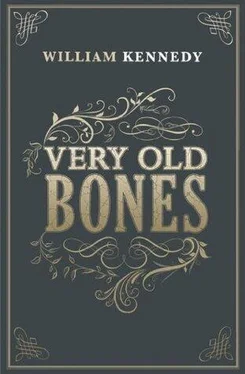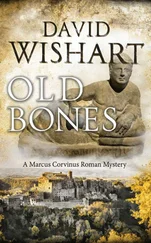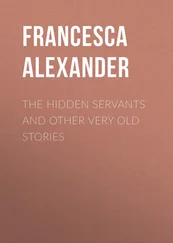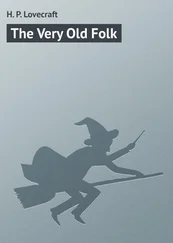I could not speak.
“There’s a potentially great book here,” said Pettijohn, “and I want you to know I’m behind it one thousand percent.” He paused, stared me in the eye. “But I can’t get anybody else in the house to back me up. Nobody sees what I see in it.”
The iceman finally cometh.
“I’ve made notes on it, and I’ve included what others say about it, so you’ll know the negatives.”
“Then you’re rejecting it.”
“Not I,” said Pettijohn, “not I. But I’m only one opinion here, and one opinion does not a novel publish.”
“A rejection by any other name.”
“Consider it temporary. Let me see it again when you’ve gone further with the story.”
“What do people fault?”
Pettijohn cast his eyes toward the ceiling. I anticipated a rain of slush from anonymous editorial heights.
“People like the story up to a point, but they think the writing lacks the necessary poetry. And they say it lacks a verve for life, that it’s life seen through a black veil of doom. The truth is, Orson, that people do occasionally laugh, even on the gallows. But this book is absolutely joyless all the way. This doesn’t bother me , but others it does. To hear them talk you’d think nobody had ever written negatively about life before you. But my arguments convince nobody about this manuscript.”
“No poetry, no verve for life, eh. They should’ve seen me in bed this morning. I was poetry in motion.”
“A wonderful way to avenge yourself on your enemies. Fuck them all to death.”
I stood up and so did Pettijohn, who picked up the manuscript.
“You want to take this?”
“I’ll get it another time.”
“What about these notes?”
“Their essence is enough for one day.”
“You’ll fatten up Meriwether’s book, won’t you?”
“I’ll make it obscenely obese.”
We nodded and shook hands across the desk and then I found my way out through the warren of corridors to the waiting room. I kept my gaze level and steady, did not glance upward toward the epiphanic walls.
Lacking in my work, and perhaps in the deepest reaches of my person, the necessary poetry, the necessary verve for life, I decided to acquire some of each, or, that being impractical, to discover, at the very least, where, how, and from whom verve and poetry were dispensed to seekers.
When I came out of the lobby of my publisher’s building and stepped onto Fifth Avenue I felt the pulsation of a new vibrancy, putting me at one with possibility in the land of opportunity. I knew this was a wholly unreasonable attitude in the face of what I had just gone through, but one must not look too closely at what liberates one into excitement. I assayed the sky and found it clear, blue, and glorious. I welcomed the snap in the early spring breeze, and I crossed to the sunny side of the avenue to confront the warmth and light of the noonday sun, which was just slightly past its zenith.
I was hungry and I envisioned food of delectable piquancy, served in luxurious surroundings by punctilious and servile waiters. I would order veal, possibly venison, perhaps duck. But I did not yet want to become stationary, however tempting and elegant the atmosphere. I would walk now, but where? I had almost three hours to spend before meeting Giselle. I’d told her to meet me about three o’clock in an Irish bar on Sixth Avenue, not far from her point of rendezvous with the editors of the greatest picture magazine in the world. Should I now walk north to Central Park, embrace the natural world of trees, of soft spring earth and new greenery, or weave my way among the sumptuous lobbies and cafés of the hotels on Central Park South? No, I longed for something grander and with more verve than those, something even more poetic than nature.
I strode southward on the avenue and knew the instant pleasure that came from the high elegance of the windows of the great stores. In Saks’ window I saw a suit that I instantly coveted, a double-breasted gray glen plaid, one of the grandest-looking suits I’d ever seen. In the window of The Scribner Book Store I found two books that suited my mood: Life Is Worth Living by Fulton Sheen and The Power of Positive Thinking by Norman Vincent Peale, wise men both. I would buy both books when I had the money. I turned, decided to say hello to Jesus at St. Patrick’s Cathedral; and I remembered the flustered Methodist cleric who protested to his Irish taxi driver that he had asked not for St. Patrick’s, but for Christ’s Church, and the driver advised him, “If you don’t find him here he’s not in town.” There’s verve.
I crossed the avenue at 49th Street and walked west between the British Empire building and La Maison Française toward the sunken plaza in Rockefeller Center. I stopped and read the credo of the great John D. Rockefeller, Jr., carved into a slab of polished black marble: “I believe in the sacredness of a promise, that a man’s word should be as good as his bond; that character — not wealth or power or position — is of supreme worth.” Wonderful. And more: “I believe that the rendering of useful service is the common duty of mankind and that only in the purifying fire of sacrifice is the dross of selfishness consumed and the greatness of the human soul set free. . I believe that love is the greatest thing in the world. .” And so do I, John, so do I.
I continued my walk through the Center, the greatest concentration of urban buildings in the world. I remembered coming here with Peter when I was a child to see the tallest Christmas tree in the world. I followed my shoes and found myself in the lobby of the Time-Life building, home to the greatest concentration of magazines in the world, and considered going up to the office where Giselle was being seduced away from me, but descended instead into the underground world of Rockefeller Center, the most labyrinthine subterranean city since the catacombs, passing stores and restaurants and murals and sculpture, far more exciting to a refined sensibility than any underground passageway anywhere, including Mammoth Cave, or the sewers of Paris. I took a stairway up into the RCA building, home to the greatest radio and television networks in the world (and next door the Associated Press building, home to the greatest news service in the world). Nothing in urban, suburban, or rural history could compare with this achievement, and as I moved through the magnificent corridors I noted shining brass everywhere: in the floors, the hand railings, the revolving doors; and the thought of the cost of such elegance exalted me.
The very idea of selfless munificence in the service of the architectural imagination was surely a pinnacle in the history of man’s capacity to aspire. And aspire I did, assuming the poetry of all this grandeur into my eyes, my ears, my sense of smell, the poetry of man the master builder, the poetry of man who climbed to the skies with his own hands, the poetry of Babel refined into godly and humanistic opportunity and respect and mortar and stone and endeavor and joy and love and money and thickness and breadth and luxury and power and piety and wonder and French cuisine and the American novel and jazz music and (oh yes, Meriwether, oh yes) the naked titties of ten thousand women. Oh the immensity of it all!
I taxied back to the apartment where Giselle and I were staying and, from the desk where our host kept his financial records, expropriated two checkbooks, two dozen of the host’s business cards, several letters that would verify my identity if the business cards and the checkbooks did not, assorted press credentials from the U.S., West Germany, the Soviet Union, Brazil, and an Arab nation whose name I did not immediately recognize, all identifying the owner as a writer for Life magazine. I folded these items into one of the host’s several empty breast-pocket wallets, dialed the number at Life Giselle had given me, and left a message for her: “Meet me at either the Palm Court or the Oak Bar of the Plaza Hotel, the greatest hotel in America, when you are free,” and I then set out in further quest of poetry and verve.
Читать дальше












